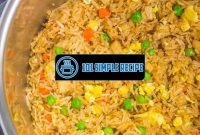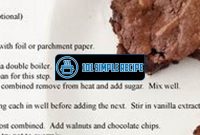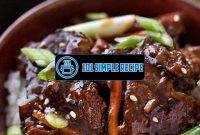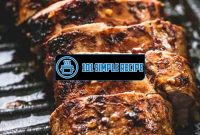Are you looking for a versatile and delicious addition to your Whole30 diet? Look no further than coconut butter! This creamy and flavorful spread is a perfect choice for adding a touch of tropical goodness to your meals and snacks. Whether you’re spreading it on toast, using it as a substitute for butter in baking, or incorporating it into your favorite recipes, coconut butter brings a unique and delightful taste to the table. In this article, we will explore the many ways you can enjoy the delicious versatility of coconut butter while staying on track with your Whole30 journey. So, grab a jar of coconut butter and let’s dive into the amazing world of this tropical delight!
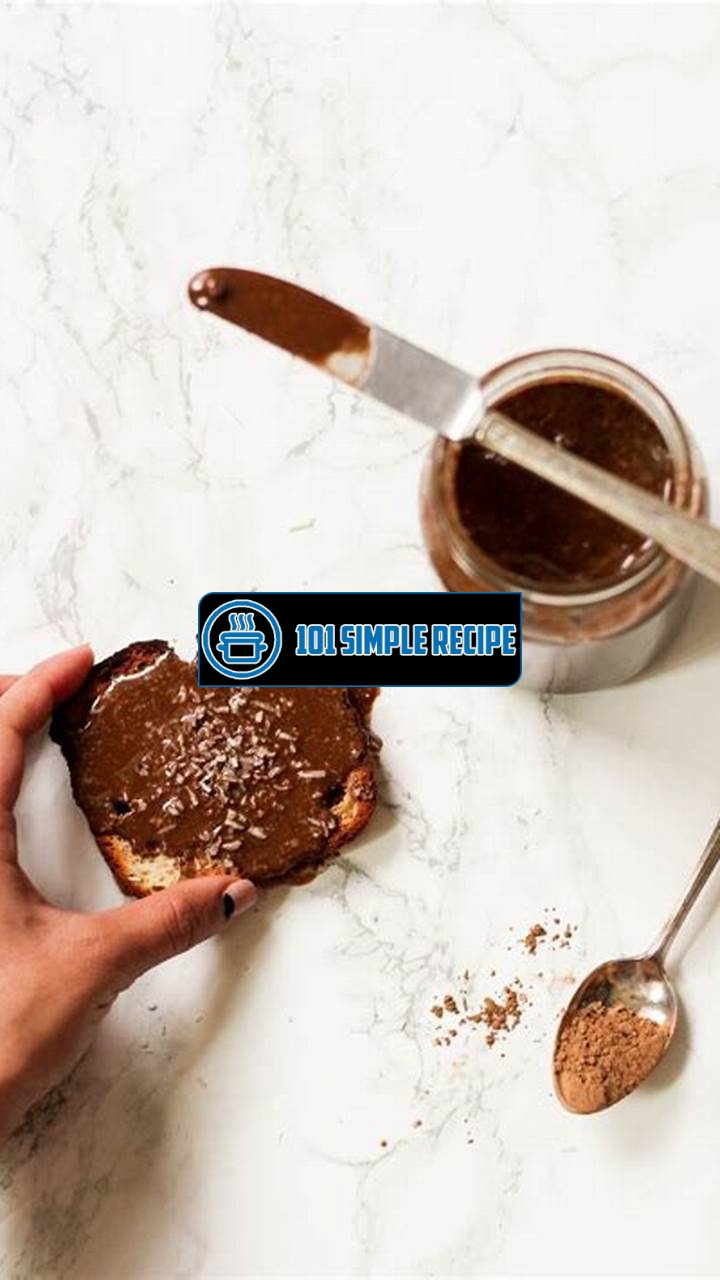
The Benefits of Coconut Butter on the Whole30 Diet
When it comes to the Whole30 diet, finding versatile ingredients that can enhance flavors and provide essential nutrients is key. One such ingredient that perfectly fits the bill is coconut butter. Not only does it offer a delicious taste, but it also brings numerous benefits to your Whole30 diet plan. Let’s explore the advantages of incorporating coconut butter into your meals and snacks.
What is the Whole30 Diet?
The Whole30 diet is a 30-day nutritional program that focuses on consuming whole foods while eliminating potentially inflammatory foods from your diet. It emphasizes whole, unprocessed foods and encourages the removal of added sugars, grains, legumes, dairy, and alcohol. The goal is to improve overall health, reduce inflammation, and reset your relationship with food.
The Health Benefits of Coconut Butter
Coconut butter is a rich and creamy spread made from the meat of mature coconuts. It is packed with nutrients that can boost your health while following the Whole30 diet. Some of the key health benefits of coconut butter include:
- High in healthy fats: Coconut butter is abundant in medium-chain fatty acids (MCFAs), such as lauric acid. These healthy fats are easily absorbed and provide a quick source of energy.
- Supports digestion: The medium-chain fatty acids found in coconut butter have antibacterial and antiviral properties that can promote a healthy gut and support digestion.
- Enhances nutrient absorption: The healthy fats in coconut butter can aid in the absorption of fat-soluble vitamins, such as vitamins A, D, E, and K, which are crucial for overall well-being.
- Boosts immunity: Lauric acid, found in abundance in coconut butter, has antimicrobial, antifungal, and antiviral properties that can support a strong immune system.
How to Choose the Right Coconut Butter
When it comes to selecting the right coconut butter for your Whole30 diet, there are a few factors to consider:
- Quality: Look for organic and raw coconut butter to ensure that you are getting the purest form without any additives or preservatives.
- Source: Opt for coconut butter made from sustainably sourced coconuts to support environmentally friendly practices.
- Texture and taste: Coconut butter can vary in texture and flavor. Experiment with different brands to find the one that suits your preferences.
Remember to read the ingredient labels carefully to avoid any hidden sugars or additional ingredients that may not align with the Whole30 diet guidelines.
Incorporating coconut butter into your Whole30 diet can provide you with a range of benefits, from boosting your energy levels to supporting your immune system. So why not get creative in the kitchen and try out some delicious recipes that feature coconut butter as a star ingredient? Enjoy the versatility and the nutritious advantages it brings to your Whole30 journey!
If you’re looking for more healthy recipes to try while on the Whole30 program, be sure to check out our weight loss recipes as well. These recipes are designed to provide nourishment while still supporting your weight loss goals.
Using Coconut Butter in Whole30 Recipes
When it comes to the Whole30 diet, finding delicious and compliant ingredients can be a challenge. However, one versatile ingredient that can add a burst of flavor and creaminess to your dishes is coconut butter. Not only does it have a rich and creamy texture, but it is also packed with healthy fats and nutrients. In this section, we will explore creative ways to incorporate coconut butter into your Whole30 recipes, allowing you to add a tropical twist to your meals.
Coconut Butter as a Nutritional Substitute
Coconut butter can be a great nutritional substitute in your Whole30 recipes. It is a fantastic alternative to dairy butter and can be used in baking, cooking, and spreads. With its creamy texture, it can be spread on toast or used as a topping for baked goods, providing a delicious and healthy alternative. Additionally, coconut butter can be used as a replacement for high-calorie condiments, such as mayonnaise or cream cheese, adding a rich and luscious flavor without compromising your Whole30 goals.
Coconut butter is also a great source of healthy fats. It contains medium-chain triglycerides (MCTs), which are easily digested and can provide a quick source of energy. These healthy fats can support brain function, boost metabolism, and even aid in weight loss. Incorporating coconut butter into your Whole30 recipes allows you to reap these benefits while enjoying flavorful and satisfying meals.
Favorite Whole30 Recipes with Coconut Butter
Looking for inspiration on how to use coconut butter in your Whole30 recipes? Look no further! Here are some favorite recipes that incorporate this versatile ingredient:
- Coconut Curry Chicken: Infuse your chicken curry with the smooth and creamy flavor of coconut butter. It adds a depth of flavor and richness to the dish that will have you coming back for seconds.
- Coconut Berry Smoothie: Blend coconut butter with fresh berries, almond milk, and a splash of honey for a refreshing and nutritious smoothie. It’s a perfect way to start your day on the Whole30 diet.
- Coconut Lime Energy Balls: Combine coconut butter, nuts, dates, and a dash of lime zest to create energy-boosting snacks that are not only delicious but also compliant with the Whole30 diet.
Tips for Cooking with Coconut Butter
If you are new to cooking with coconut butter, here are some tips to help you make the most of this ingredient:
- Melt before use: Coconut butter has a solid consistency at room temperature due to its high-fat content. To incorporate it into your recipes, gently heat it until it melts and becomes easier to blend or spread.
- Experiment with flavors: Coconut butter has a naturally sweet and tropical taste, which pairs well with a variety of flavors. Feel free to experiment with different spices and add-ins to create unique and delicious dishes.
- Store properly: To prevent your coconut butter from going rancid, store it in an airtight container in a cool and dry place, away from direct sunlight.
Now that you know the delicious versatility of coconut butter on the Whole30 diet, it’s time to get creative in the kitchen. Whether you use it as a nutritional substitute or try out some favorite recipes, coconut butter is sure to elevate your dishes and add a touch of tropical indulgence.
When following the Whole30 diet, it’s important to find suitable alternatives for certain ingredients. One great option is coconut butter, which can be used as a replacement for traditional dairy-based butter.
Nutritional Value of Coconut Butter on Whole30
Coconut butter is a versatile and nutritious ingredient that can be a valuable addition to your Whole30 diet. This natural food is packed with essential nutrients and health-promoting properties that can support your overall well-being. Let’s explore the specific benefits that coconut butter brings to the table.
Healthy Fats in Coconut Butter
One of the key components of coconut butter is its high content of healthy fats. These fats include medium-chain triglycerides (MCTs), which are easily digestible and quickly converted into energy by your body. Unlike unhealthy saturated fats, MCTs can actually help boost your metabolism and promote weight loss. Incorporating coconut butter into your Whole30 diet can provide a tasty source of healthy fats that keep you feeling satisfied and energized.
Coconut Butter as a Natural Energy Source
Coconut butter is not only a rich source of healthy fats but also a natural energy booster. The MCTs in coconut butter are processed by the liver and quickly utilized as fuel for your body and brain. This makes coconut butter an excellent choice for athletes or anyone in need of sustained energy throughout the day. Whether you spread it on toast, mix it into smoothies, or use it as a topping for your favorite desserts, coconut butter can provide a delicious and natural way to power through your Whole30 journey.
Additional Nutrients in Coconut Butter
Aside from healthy fats and energy-boosting properties, coconut butter also contains an array of additional nutrients that can support your overall health on the Whole30 diet. It is a great source of fiber, which can help regulate your digestive system and promote satiety. Coconut butter also boasts beneficial minerals such as iron, magnesium, and potassium, which are essential for various bodily functions, including maintaining healthy muscles and promoting proper heart function. Adding coconut butter to your Whole30 meals ensures you’re not only enjoying its delicious flavor but also reaping the nutritional benefits it has to offer.
In conclusion, coconut butter is a highly versatile and nutritious ingredient that can enhance your Whole30 journey. Its abundance of healthy fats, natural energy-boosting properties, and additional nutrients make it a valuable addition to your diet. So, why not give coconut butter a try and discover the many ways it can add flavor and nutrition to your Whole30 meals?
Coconut Butter vs. Other Nut Butters on Whole30
When it comes to the Whole30 diet, coconut butter stands out as a versatile and delicious option. Its unique properties set it apart from other popular nut butters. Let’s take a closer look at how coconut butter compares to almond butter, cashew butter, and peanut butter, and why it is a fantastic addition to your Whole30 journey.
Coconut Butter vs. Almond Butter
Coconut butter and almond butter are both widely enjoyed spreads, but they differ in several ways. One key distinction lies in their taste profiles. Coconut butter offers a creamy, tropical flavor that adds a hint of sweetness to your meals, while almond butter has a rich, nutty taste that perfectly complements various dishes. It’s important to note that almond butter is not compliant with the Whole30 diet due to its potential inflammatory effects. On the other hand, coconut butter is fully compliant and provides a nutritious alternative.
- Coconut Butter: Creamy, tropical flavor that adds a touch of sweetness.
- Almond Butter: Rich, nutty taste but not compliant with the Whole30 diet due to potential inflammatory effects.
Coconut Butter vs. Cashew Butter
Comparing coconut butter to cashew butter reveals some interesting characteristics. While both are creamy and smooth, cashew butter has a milder taste compared to the distinct tropical flavor of coconut butter. From a nutritional standpoint, coconut butter is a winner, offering a variety of health benefits such as its medium-chain triglycerides (MCTs) that can aid in weight loss and boost brain function. On the Whole30 diet, coconut butter emerges as the clear choice due to its compliance and nutrient profile.
- Coconut Butter: Distinct tropical flavor with added health benefits like MCTs.
- Cashew Butter: Milder taste but lacks the nutritional advantages of coconut butter. Does not comply with Whole30.
Coconut Butter vs. Peanut Butter
Lastly, let’s compare coconut butter to the popular peanut butter. While peanut butter is a staple in many households, it is not compatible with the Whole30 diet due to its legume-based nature, which might cause inflammation and digestive issues for some individuals. On the other hand, coconut butter is a mouthwatering option that satisfies cravings and complies with the Whole30 guidelines. Its versatility allows you to incorporate it into various recipes, making it an excellent substitute for peanut butter.
- Coconut Butter: Whole30 compliant and versatile, making it a suitable substitute for peanut butter.
- Peanut Butter: Not allowed on the Whole30 diet due to its legume content.
In conclusion, coconut butter proves to be an exceptional choice when compared to almond butter, cashew butter, and peanut butter within the context of the Whole30 diet. Its tropical flavor, compliance with the diet, and numerous health benefits make it an excellent addition to your pantry. So go ahead, embrace the delicious versatility of coconut butter and elevate your Whole30 experience!
Tips for Incorporating Coconut Butter into a Whole30 Lifestyle
When it comes to adopting a Whole30 lifestyle, incorporating coconut butter can be a game-changer. This versatile ingredient is not only delicious but also packed with nutrients that can enhance your overall well-being. Here are some practical strategies and suggestions to seamlessly integrate coconut butter into your Whole30 journey.
Meal Planning with Coconut Butter
One of the key aspects of a successful Whole30 lifestyle is meal planning. Coconut butter can be your best friend during this process. Here’s how:
- Add a dollop of coconut butter to your morning coffee for a creamy and flavorful twist. ☕️
- Use coconut butter as a substitute for dairy-based spreads or dressings when preparing your meals.
- Experiment with coconut butter in your cooking to add a luscious texture and tropical taste to your dishes.
- Combine coconut butter with your favorite spices and herbs to create mouthwatering marinades for meats and veggies. ️
- Spread coconut butter on top of your favorite Whole30-compliant snacks like apple slices or celery sticks for an added burst of flavor and healthy fats.
Snack Ideas with Coconut Butter
Snacking can be challenging during the Whole30 program, but coconut butter can come to the rescue. Here are some snack ideas to savor:
- Dip fresh berries into a generous portion of coconut butter for a sweet and satisfying treat.
- Blend coconut butter with frozen fruits and a splash of coconut milk to make a creamy and refreshing smoothie.
- Spread coconut butter on crunchy plantain chips or kale chips for a savory and nutritious snack.
- Mix coconut butter with almond butter and a sprinkle of cinnamon to create a delightful dip for carrot sticks or sweet potato fries.
- Make energy balls by combining coconut butter, nuts, and dried fruits, and keep them handy for when hunger strikes. ️
Longevity and Sustainability of Coconut Butter on Whole30
Coconut butter is not only beneficial for your health but also for the environment. Here’s why:
Coconut butter is derived from coconuts, which are a sustainable and renewable resource. This makes it an eco-friendly choice for conscious individuals seeking to lessen their environmental impact.
Furthermore, coconut butter has a long shelf life due to its high saturated fat content. It can be stored for months without the need for refrigeration, making it a convenient option for Whole30 followers.
In conclusion, discovering the delicious versatility of coconut butter can revolutionize your Whole30 experience. From incorporating it into your meal planning to exploring various snack ideas, coconut butter offers endless possibilities. Embrace this tropical ingredient and enhance your Whole30 lifestyle today!
Including variety in your diet is key, even when following a specific program like Whole30. If you’re in need of a refreshing and delicious beverage option, try our punch bowl recipe. It’s full of fruity flavors and perfect for any occasion.
Frequently Asked Questions
Here are some frequently asked questions about coconut butter on Whole30:
| No. | Questions | Answers |
|---|---|---|
| 1. | Is coconut butter allowed on the Whole30 diet? | Yes, coconut butter is allowed on the Whole30 diet as long as it is made from pure coconut flesh without any added sugars or additives. |
| 2. | What are the benefits of coconut butter? | Coconut butter is packed with healthy fats, fiber, and minerals. It can support weight loss, improve digestion, and provide a sustainable source of energy. |
| 3. | How do I use coconut butter? | Coconut butter can be spread on toast, used as a topping for smoothie bowls, added to baked goods for a rich flavor, or enjoyed straight from the jar. |
| 4. | Can I make coconut butter at home? | Yes, you can make coconut butter at home by blending shredded coconut in a food processor until it becomes creamy and smooth. |
| 5. | How should I store coconut butter? | Coconut butter should be stored in a cool, dry place. If it solidifies, simply warm it slightly before using. |
| 6. | Where can I buy coconut butter? | Coconut butter can be found in health food stores, specialty grocery stores, or online retailers. |
Thank You for Reading!
We hope this article has provided you with valuable information about coconut butter on Whole30. Whether you’re already a fan of coconut butter or just discovering its benefits, adding it to your Whole30 journey can enhance your meals and promote overall well-being. Don’t hesitate to visit our website again for more health tips, recipes, and inspiration. Enjoy your Whole30 experience!
Jump to Recipe
Coconut Butter Whole30

Discover the benefits and uses of coconut butter on the Whole30 diet. Learn how to incorporate this nutritious and delicious ingredient into your meals.
- 3 cups shredded coconut
- pinch of salt
- Place the shredded coconut and salt in a food processor. Blend for 5-7 minutes, scraping down the sides as needed, until the mixture turns creamy and smooth.
- Transfer the coconut butter to a jar and seal tightly. Store it in a cool, dry place.

